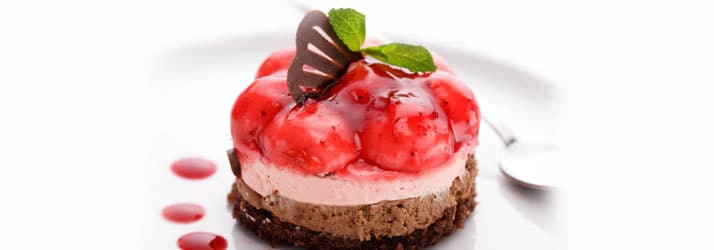Tuesday's Q&A in Lafayette LA - 6/10/14

This week's Q&A Tuesday is all about SUGAR.
Why does summer always bring to mind sweets like snow cones and ice cream? But what if I told you that sugar is your sweet old friend that is secretly plotting your demise! There is a vast sea of research suggesting that it is. Science has now shown us, beyond any shadow of a doubt, that sugar in your food, in all its myriad of forms, is taking a devastating toll on your health in Lafayette LA.
The single largest source of calories for Americans comes from sugar-specifically high fructose corn syrup. Just take a look at the sugar consumption trends of the past 300 years:
- In 1700, the average person consumed about 4 pounds of sugar per year.
- In 1800, the average person consumed about 18 pounds of sugar per year.
- In 1900, individual consumption had risen to 90 pounds of sugar per year.
- In 2009, more than 50 percent of all Americans consume one-half pound of sugar PER DAY-translating to a whopping 180 pounds of sugar per year!
Sugar is loaded into your soft drinks, fruit juices, sports drinks, and hidden in almost all processed foods-from bologna to pretzels to Worcestershire sauce to cheese spread. And now most infant formula has the sugar equivalent of one can of Coca-Cola, so babies are being metabolically poisoned from day one of taking formula.
No wonder there is an obesity epidemic in this country!
Dr. Mercola, MD states that today, 32 percent of Americans are obese and an additional one-third is overweight. Compare that to 1890, when a survey of white males in their fifties revealed an obesity rate of just 3.4 percent. In 1975, the obesity rate in America had reached 15 percent, and since then it has doubled. Obesity can be directly correlated to the amount of sugar consumed. Period.
Sugars 101 - Basics of How to Avoid Confusion on This Important Topic
It is easy to become confused by the various sugars and sweeteners. So here is a basic overview:
- Dextrose, fructose, and glucose are all monosaccharides, known as simple sugars. The primary difference between them is how your body metabolizes them. Glucose and dextrose are essentially the same sugar. However, food manufacturers usually use the term "dextrose" in their ingredient list.
- The simple sugars can combine to form more complex sugars, like the disaccharide sucrose (table sugar), which is half glucose and half fructose.
- High fructose corn syrup (HFCS) is 55 percent fructose and 45 percent glucose.
- Ethanol (drinking alcohol) is not a sugar, although beer and wine contain residual sugars and starches, in addition to alcohol.
- Sugar alcohols like xylitol, glycerol, sorbitol, maltitol, mannitol, and erythritol are neither sugars nor alcohols but are becoming increasingly popular as sweeteners. They are incompletely absorbed from your small intestine, for the most part, so they provide fewer calories than sugar but often cause problems with bloating, diarrhea, and flatulence.
- Sucralose (Splenda) is NOT a sugar, despite its sugar-like name and deceptive marketing slogan, "made from sugar." It's a chlorinated artificial sweetener in line with aspartame and saccharin, with detrimental health effects to match.
- Agave syrup, falsely advertised as "natural," is typically HIGHLY processed and is usually 80 percent fructose. The end product does not even remotely resemble the original agave plant.
- Honey is about 53 percent fructose, but is completely natural in its raw form and has many health benefits when used in moderation, including as many antioxidants as spinach.
- Stevia is a highly sweet herb derived from the leaf of the South American stevia plant, which is completely safe (in its natural form).
The explosion of soda consumption is the major cause of this.
Today, 55 percent of sweeteners used in food and beverage manufacturing are made from corn, and the number one source of calories in America is soda, in the form of high fructose corn syrup (HFCS). Food and beverage manufacturers began switching their sweeteners from sucrose to corn syrup in the 1970s when they discovered that HFCS was not only far cheaper to make, but is also about 20 percent sweeter than conventional table sugar that has sucrose. HFCS contains the same two sugars as sucrose but is more metabolically risky to you, due to its chemical form. The fructose and the glucose are not bound together in HFCS, as they are in table sugar, so your body doesn't have to break it down. Therefore, the fructose is absorbed immediately, going straight to your liver.
Sugar Sensitization Makes the Problem Even WORSE!
There is yet another problem with sugar-a self-perpetuating one. According to Dr. Mercola, sugar activates its own pathways in your body-those metabolic pathways become "UPregulated." In other words, the more sugar you eat, the more effective your body is in absorbing it; and the more you absorb, the more damage you'll do. You become "sensitized" to sugar as time goes by, and more sensitive to its toxic effects as well. The flip side is, when people are given even a brief sugar holiday, sugar sensitization rapidly decreases and those metabolic pathways become "downregulated." Research tells us that even two weeks without consuming sugar will cause your body to be less reactive to it. Try it for yourself! Take a two-week sugar sabbatical and see how different you feel.
And FINALLY, since we've all had those days when you're craving sugar so badly that nothing seems to help, when the usual distractions are just not working, and you really want a chocolate brownie or ice cream, here are some ideas to help you "quiet the craving" and make an alternative food choice that won't make you feel like junk:
- Bake a sweet potato and serve with a pat of coconut oil and a sprinkle of cinnamon.
- Roast a selection of root vegetables in olive oil and salt, such as fennel, carrots, onions, parsnips, and sweet potatoes. Roasting brings out their sweetness. You can eat as is or add to a leafy green salad.
- Brew yourself a cup of fruity herbal tea, which is naturally sweet. Drink hot or allow to chill and serve over ice or once cool, pour into ice pop molds and freeze for a healthy iced treat.
- Whip up a smoothie with avocado, (these healthy fats will keep you feeling satisfied), ½ cup organic blueberries, 6- 8 oz unsweetened vanilla almond milk, 1 tblsp. of cacoa powder and a few ice cubes. Blend till creamy.
- Chilled coconut water is slightly sweet and often does the job. It also makes a delicious homemade ice pop.
- Chop up a small apple or pear into small dice and sauté in coconut oil till soft. Sprinkle with cinnamon and enjoy.
- Roast some shredded, organic, unsweetened coconut on a cookie sheet in a single layer. Sprinkle lightly with salt and roast at 375 degrees for 10 minutes - SO YUMMY!
- Not your mother's almond butter on a celery stick: Mix together 4 tblsp. almond butter, 1 tblsp. coconut oil, ½ tsp maple syrup, salt and cinnamon to taste. Spread on celery sticks.
- Slice an apple and spread with coconut butter and cinnamon.
- Mix 3 tblsp. almond butter with 1 tsp. honey. Slice and apple and dip!
AND for this week's recipe - my FAVORITE, healthy dessert of all time… (that will satisfy even the pickiest sweet tooth)
Chocolate chia seed pudding
- 1/4 c. chia seeds
- 1 c. unsweetened vanilla almond milk
- 2 tbsp. unsweetened cocoa powder
- 1 tbsp. organic maple syrup (or a ¼ tsp. stevia)
- 1 tsp. vanilla extract
Combine all ingredients in a medium bowl. Cover and refrigerate overnight or at least 8 hours. Transfer mixture to a high-powered blender and blend until completely smooth. If pudding is warm from blending, return to refrigerator until chilled. (Alternately, you can just stir the pudding and eat it without blending.)
By Francesca Marino D.C.
OFFICE HOURS
Monday
8:30am - 5:30pm
Tuesday
8:30am - 5:30pm
Wednesday
Closed
Thursday
8:30am - 5:30pm
Friday
7:30am - 11:30am
Saturday & Sunday
Closed
Open for Massage & Treatment
During Business Hours
Modern Chiropractic
318 Bertrand Dr #101
Lafayette, LA 70506



